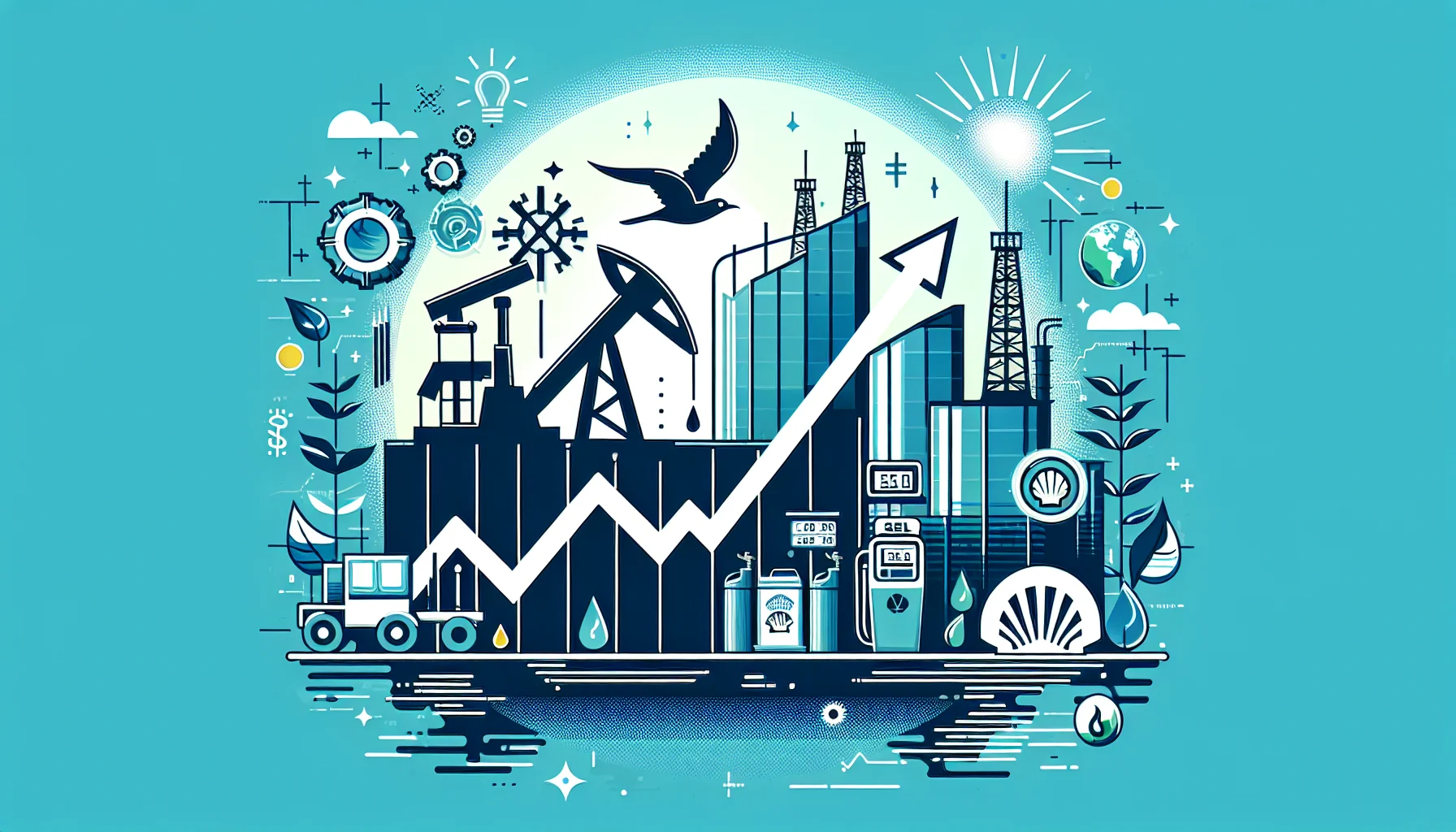
Shell’s Stock Surge: A Deep Dive into the Q4 Update Fueling Investor Optimism
In the often-turbulent world of the stock market, positive signals from industry giants can send ripples of confidence across trading floors. This is precisely what happened as Shell (SHEL) saw its shares climb following a much-anticipated Q4 2023 trading update. The energy titan delivered a pre-earnings announcement that painted a picture of robust operational performance, particularly in its Integrated Gas and Chemicals divisions. This update not only assuaged concerns following a less-than-stellar third quarter but also provided a fascinating glimpse into the company’s strategic navigation of the complex global economy.
For investors, finance professionals, and anyone with a keen eye on corporate health, this news is more than just a fleeting headline. It’s a case study in resilience, strategic trading, and financial planning. Let’s break down the key components of Shell’s update and explore what this means for the company and the broader market.
The Powerhouse Divisions: Gas and Chemicals Lead the Charge
The core of the positive sentiment stemmed from two of Shell’s most critical business segments. The company signaled that its Integrated Gas division is set to post results “significantly higher” than in the third quarter. This is a crucial indicator of the company’s ability to capitalize on market dynamics.
The global gas market is characterized by volatility, influenced by everything from geopolitical tensions to seasonal demand shifts. For a major player like Shell, this volatility isn’t just a risk; it’s an opportunity. Superior performance in this division points to a highly effective trading arm. Using sophisticated analytical tools and deep market knowledge—areas where financial technology (fintech) is increasingly playing a role—Shell’s traders were able to leverage price fluctuations and secure strong margins. This success underscores the importance of a robust trading strategy in the modern energy sector, a field where principles of economics and real-time data analysis are paramount.
Simultaneously, the Chemicals and Industrial Products division showed a significant rebound. Shell projected improved margins of $125 per tonne for the quarter, a welcome recovery from the $27 per tonne seen in Q3. The chemicals sector is often a bellwether for the broader industrial economy. Improved margins suggest either a decrease in feedstock costs, an increase in the price of finished chemical products, or a combination of both, signaling strengthening demand and more favorable operating conditions.
Furthermore, the company’s Upstream production—the exploration and extraction of oil and gas—is expected to fall within the guided range of 1,830 to 1,930 thousands of barrels of oil equivalent per day (kboe/d). This stability in its core production business provides a solid foundation, allowing the more dynamic trading divisions to excel.
Strategic Pruning: Understanding the Multi-Billion Dollar Impairment
While the operational news was overwhelmingly positive, the update also included a significant financial footnote: a post-tax impairment charge ranging from $2.5 billion to $4.5 billion. For those new to investing, an impairment charge is a non-cash accounting measure that reduces the book value of an asset when its market value or future earning potential has fallen below that book value. It’s essentially a corporate admission that an asset is no longer worth what it was once thought to be.
In Shell’s case, these impairments are primarily linked to its Singapore refining and chemicals assets. Rather than viewing this purely as a loss, it’s more accurately interpreted as a strategic realignment. The global energy landscape is undergoing a monumental shift. Companies like Shell are continuously evaluating their portfolios to shed less profitable or non-strategic assets and double down on higher-growth areas, such as liquefied natural gas (LNG) and renewables.
This move reflects a disciplined approach to capital allocation. By writing down the value of these Singapore assets, Shell is cleaning up its balance sheet and signaling to the market that it is proactively managing its portfolio for the future. This kind of financial housekeeping, while resulting in a large one-time charge, is often viewed favorably by the stock market in the long run as it demonstrates forward-thinking leadership.
Market Reaction and Investor Outlook
The market’s response was swift and clear. Shell’s shares rose by approximately 1.4% in early trading following the announcement. This positive movement reflects investor confidence that the strong operational performance, particularly the outsized results from gas trading, will more than compensate for the non-cash impairment charges.
Financial analysts echoed this sentiment. Experts at RBC Capital Markets, for instance, labeled the update as “constructive,” highlighting that the expected beat in the Integrated Gas division was a key driver of their positive outlook. This kind of validation from the professional finance community is critical in shaping broader market perception.
So, what should an investor take away from this?
- Operational Excellence: Shell has demonstrated its ability to thrive in a volatile market, with its trading division proving to be a formidable profit center.
- Strategic Foresight: The company is not afraid to make tough decisions, like taking a significant impairment, to position itself for future growth and the ongoing energy transition.
– Resilience: After a weaker Q3, this update shows a strong bounce-back, indicating the fundamental strength and diversity of Shell’s business model.
The full picture will become clearer when Shell releases its complete Q4 and full-year results on February 1st. Investors will be keenly watching for details on cash flow, shareholder returns (dividends and buybacks), and the company’s capital expenditure plans for the coming year. These figures will provide the ultimate context for the trading update’s promising preview.
The Broader Context: Energy, Technology, and the Future
Shell’s performance doesn’t exist in a vacuum. It is a reflection of major trends shaping the 21st-century global economy. The increasing sophistication of energy trading is a testament to the power of financial technology. While the energy sector has traditionally been about physical assets, it is now equally about data, algorithms, and predictive analytics. The integration of advanced fintech platforms into traditional banking and commodity trading infrastructure is what allows for the kind


